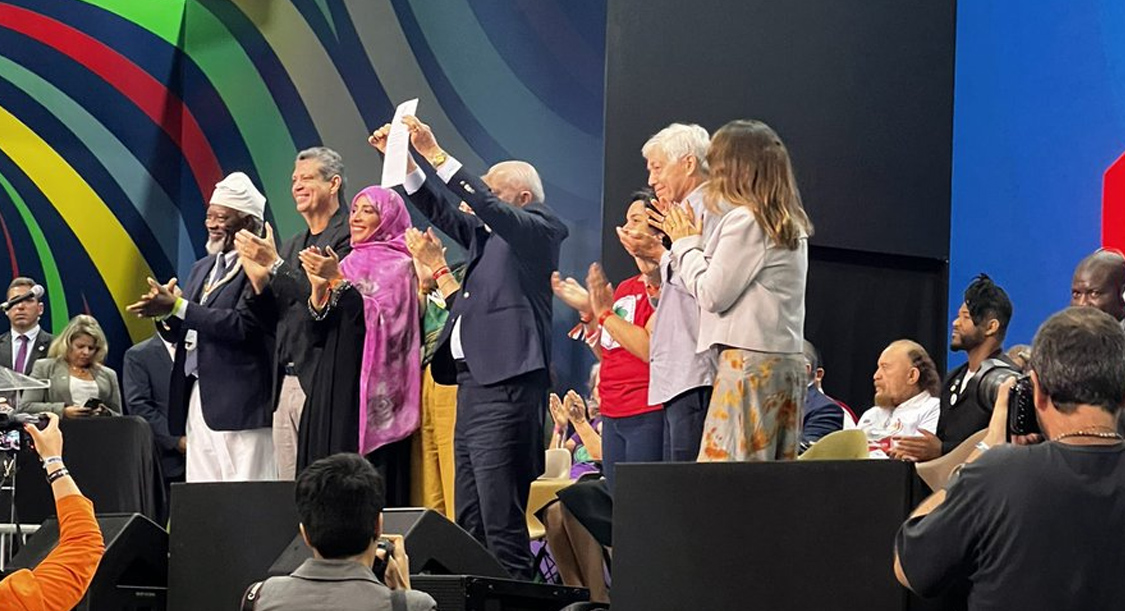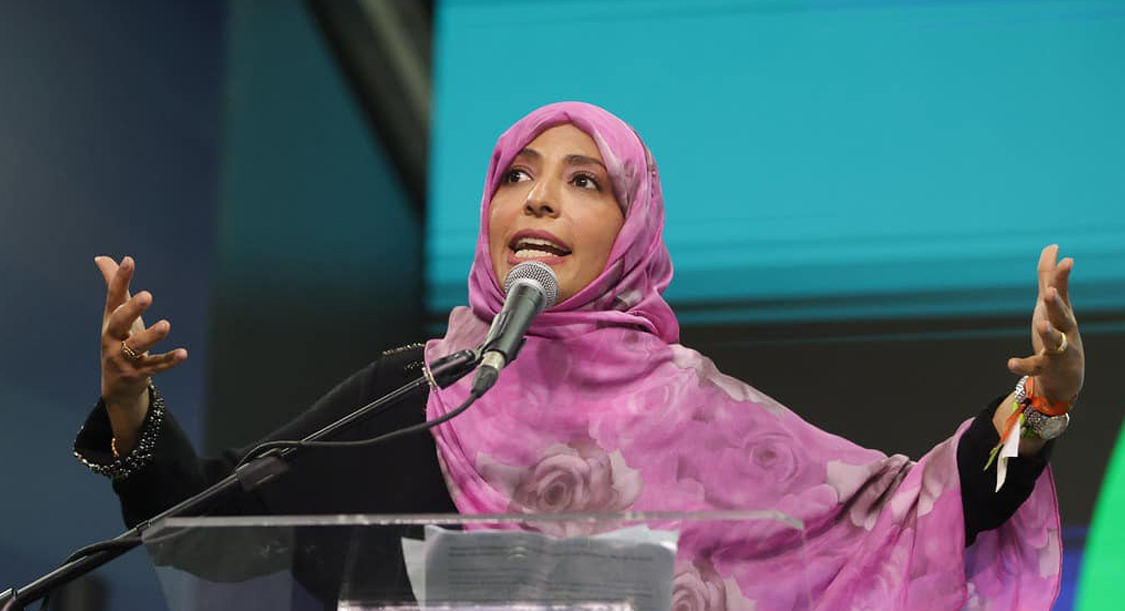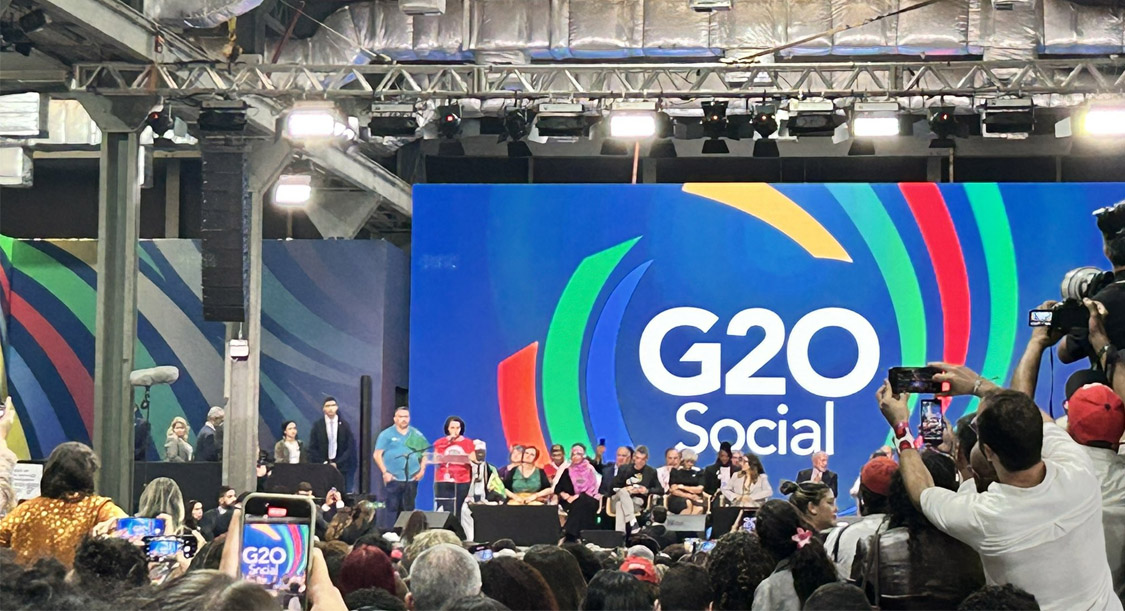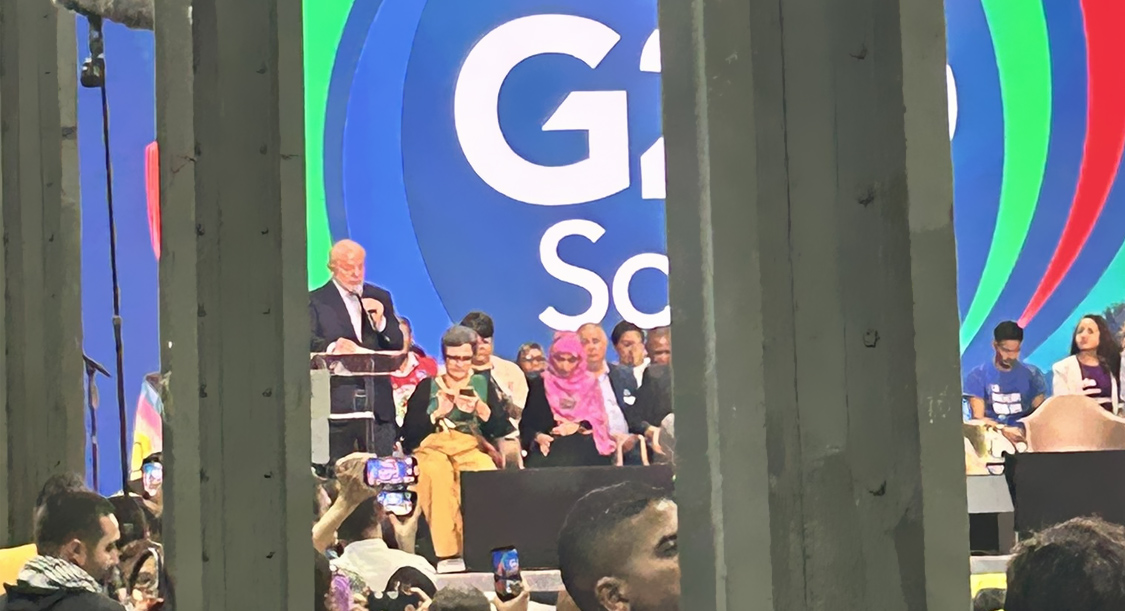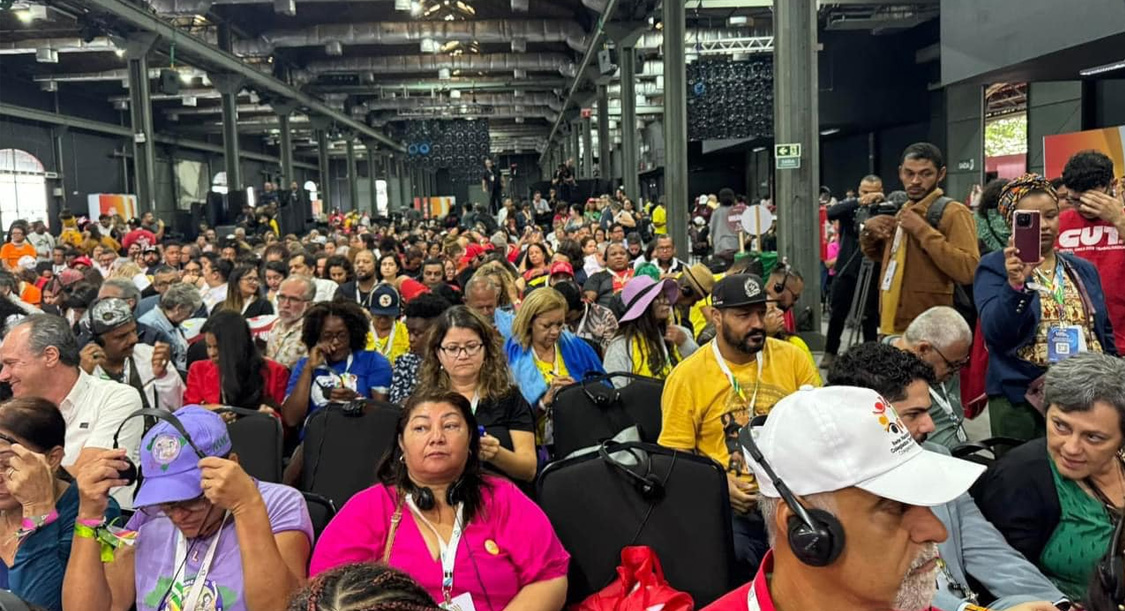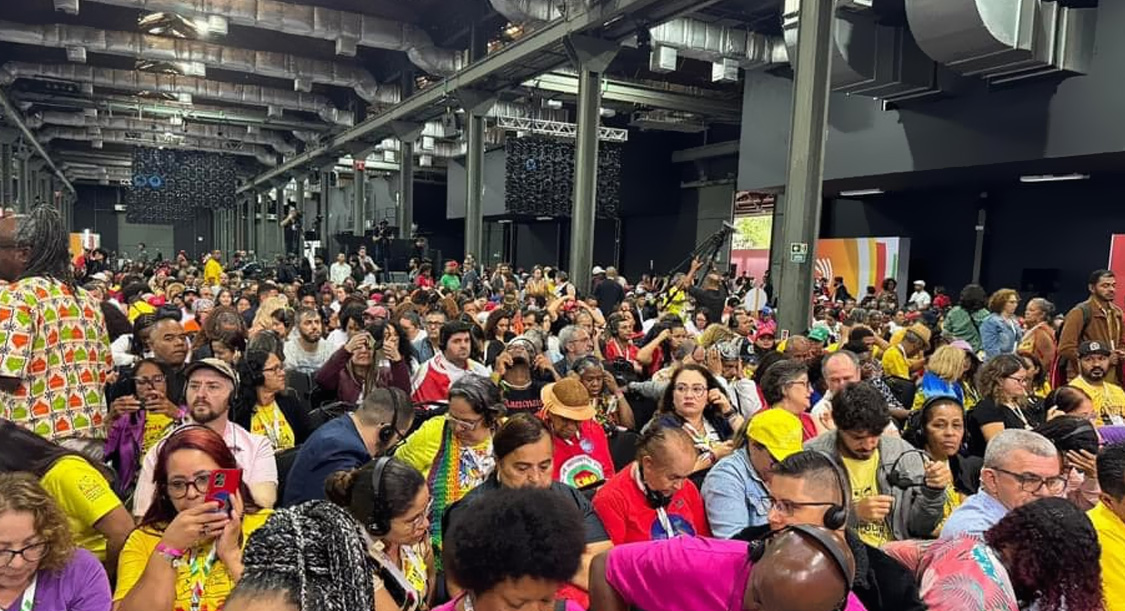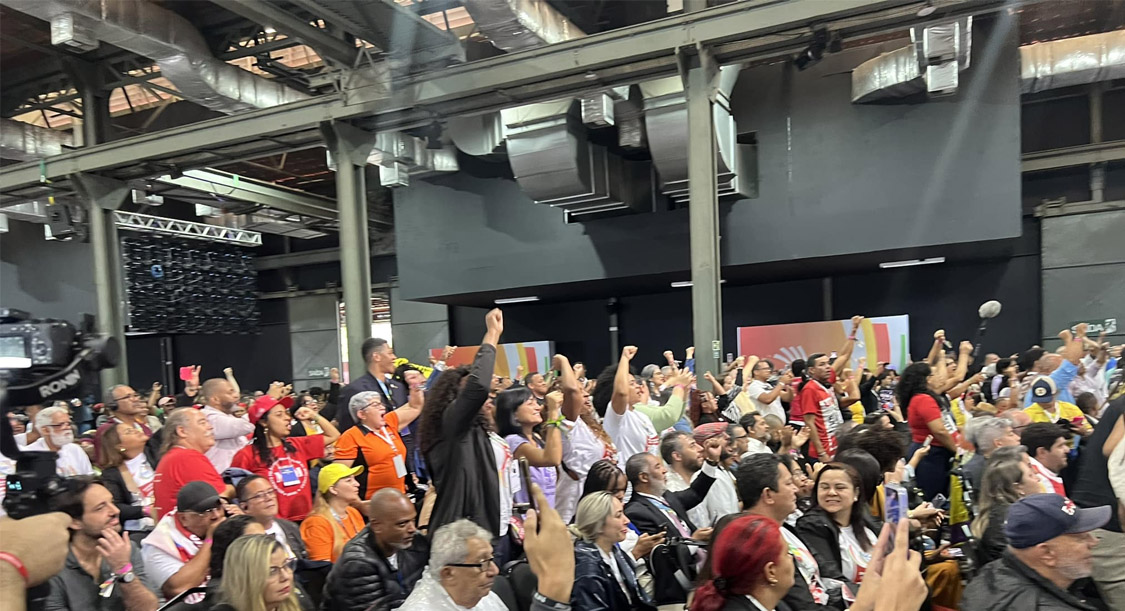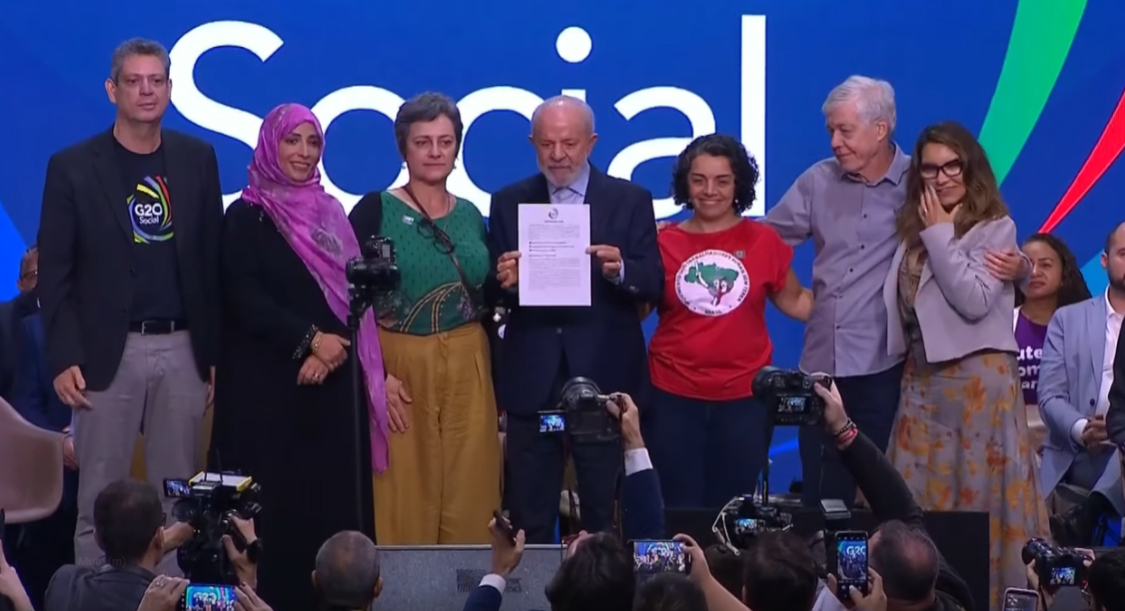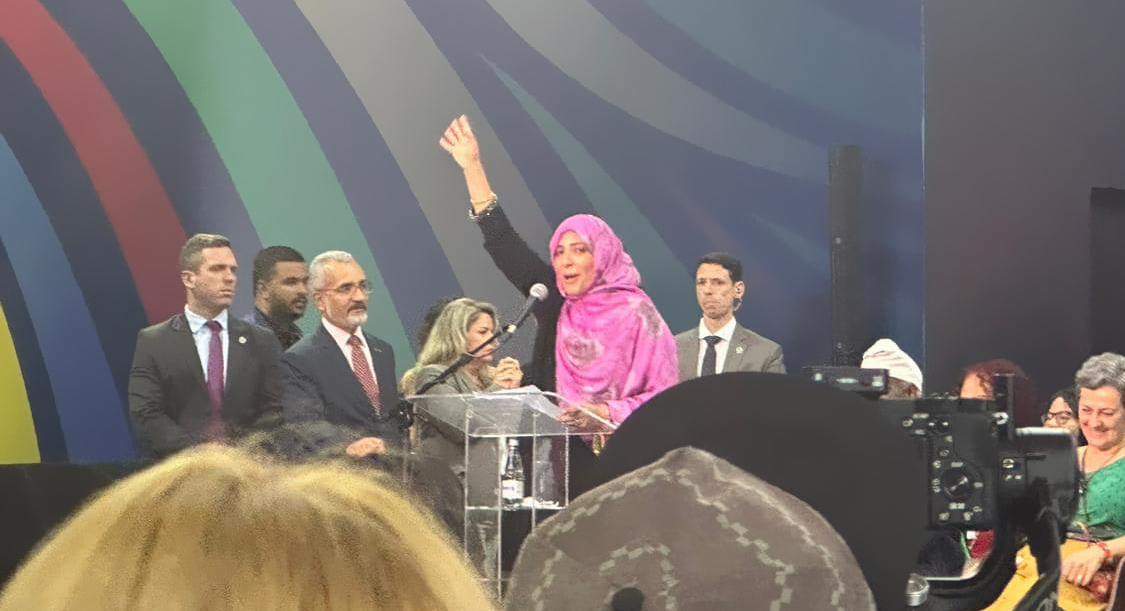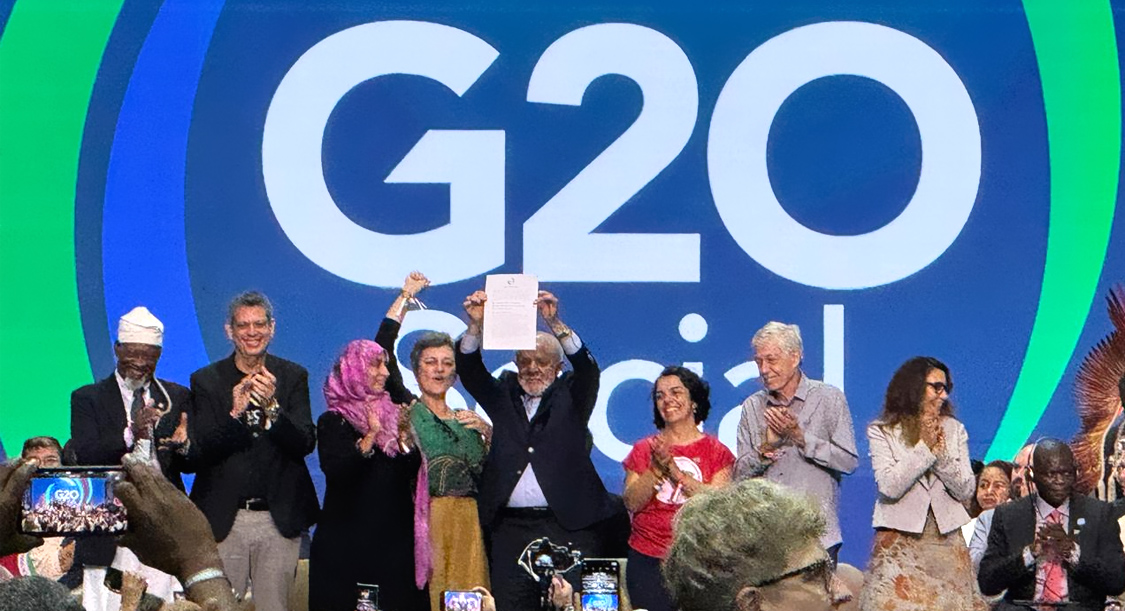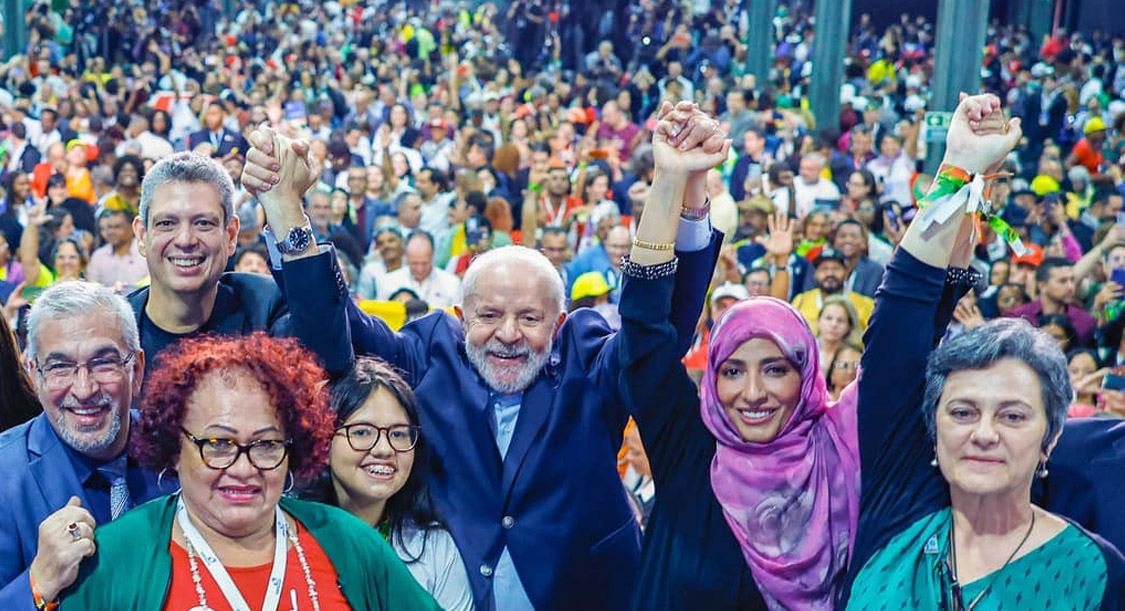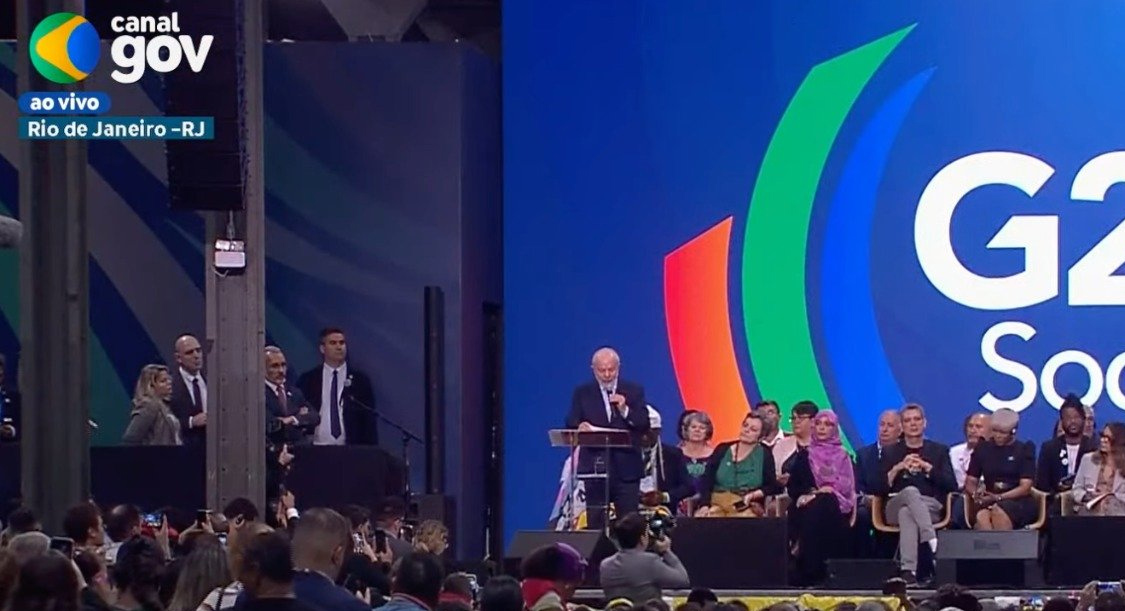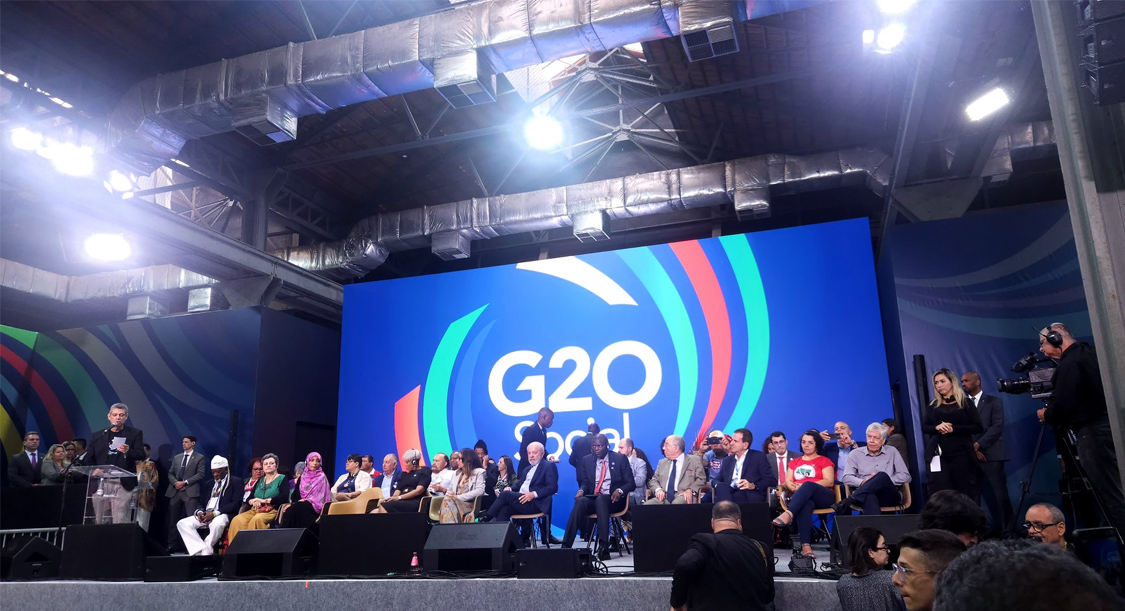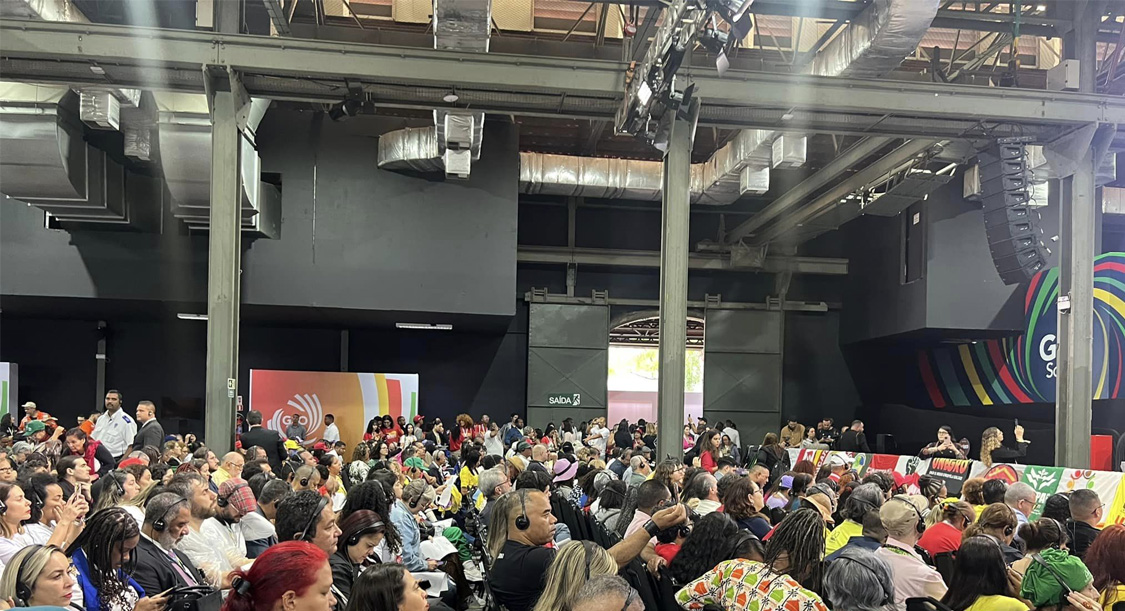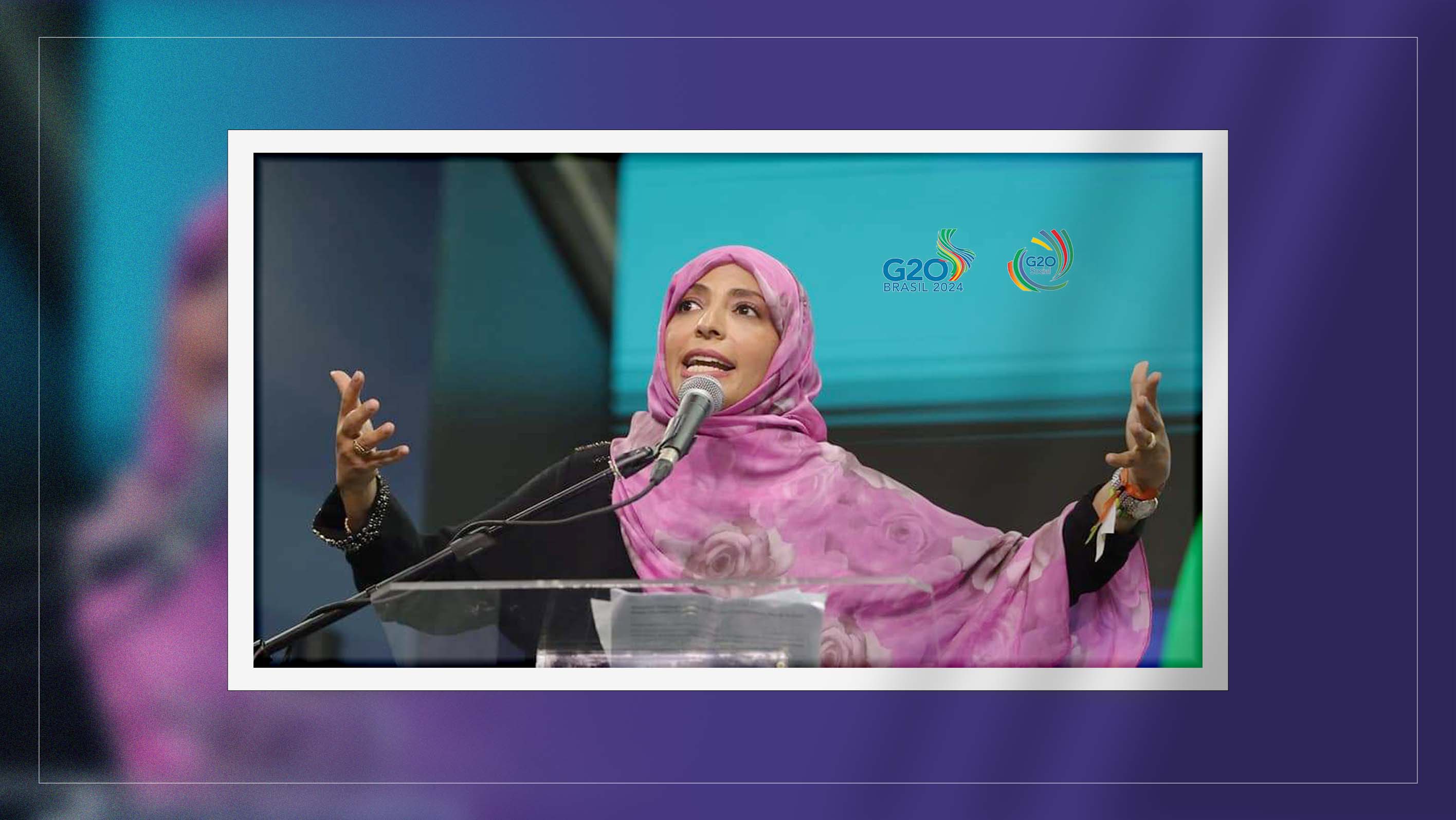Nobel Peace Prize-winning human rights activist Tawakkol Karman has delivered an address at the closing ceremony of the G20 Social Summit in Brazil, condemning Israeli violence against Palestinians as a "genocide" and calling for an end to the ongoing war.
Karman detailed over a year of what she described as unprecedented atrocities and ethnic cleansing, highlighting the use of siege tactics, starvation, and the deprivation of essential resources.
She emphasized that the pursuit of world peace is hindered by ongoing crises, injustice, and oppression, stating, "To achieve peace, we must address the roots of war by ending the Israeli occupation and protecting human rights."
Karman underscored the disproportionate suffering of the world's poorest and most marginalized communities, criticizing wealthier nations for their failure to adequately confront global crises.
She specifically praised South Africa's efforts and addressed the President of Brazil, declaring, "You are a source of inspiration for free people who struggle for social justice around the world." Concluding her remarks, she expressed hope that the summit’s decisions would lead to immediate and meaningful action for global change.
Karman issued a fervent call for international condemnation of violence, an immediate cessation of hostilities, and the prosecution of those responsible for atrocities in Palestine.
She stressed the necessity of reforming global governance institutions such as the World Bank, International Monetary Fund, World Trade Organization, United Nations, and Security Council to create a more inclusive world.
Karman stated, "The leaders of countries representing 85% of the global GDP are meeting here in Brazil." She urged them to recognize their wealth, influence, and responsibility to reduce poverty, close the wealth gap, and support sustainable development.
Addressing world leaders directly, Karman implored, "Remember that the world and humanity are watching you, and they expect a lot from you." She called on them to unite rather than divide, emphasizing that the summit is an opportunity to work with vision and courage to build a world where dignity, peace, and justice prevail.
Here is the complete text of the speech:
Salam Alaykum, Peace be upon you all.
First, let me extend my heartfelt thanks to President of Brazil Lula Daselva and his wife the First Lady Mrs Janja Lula da Silva, for organizing the G20 Social Summit an important event that shines a spotlight on amplifying civil society's contributions and messages to the G20 agenda and leaders.
I am also so happy that I am here
gathering with these great people and NGOs in Brazil, a great nation of resilience and diversity. May this summit lead to decisive actions to save our planet, reduce poverty, ensure economic equality, and secure a future of justice and peace.
I also want to express my gratitude to the incredible Power of Women network, which brings together remarkable women from around the world. Today, I have the honor of representing their voices, along with those of international NGOs, on this important stage.
Here I will talk about global peace, which is really at stake, The pursuit of global peace is overshadowed by the intertwined crises of climate change, poverty, injustice, oppression, and the lack of efficient global governance. Among these, climate change poses a direct and escalating threat to global security, fueling environmental disasters, mass displacement, and resource scarcity. It is the world's poorest and most marginalized communities that suffer the gravest consequences, while wealthier nations frequently fall short in fulfilling their responsibilities to confront this crisis. As we gather in Rio, the historic birthplace of three transformative climate summits, we and the leader of the G20 must renew our commitment to decisive action—mitigating Global warming while fostering a more just and sustainable future for all.
Wars in Gaza, Ukraine, Sudan, Lebanon, Syria, Yemen, and beyond, oppression, injustice, and conflict continue to cause unimaginable suffering. Humanitarian crises intensify as civilians endure massacres, famine, and destruction. To achieve lasting peace, we must address the root causes of war by ending occupations, protecting human rights, defending and supporting democracy, empowering women and youth across all sectors of society—especially in decision-making—safeguarding the rights of Indigenous peoples, combating poverty, ensuring justice, fostering dialogue and arbitration, and striving for equitable recovery.
Economic equality is a pillar of global peace, justice, and security. Hundreds million people live in extreme poverty, lacking education, healthcare, and clean water. The leaders of nations in the G20 representing 85% of the world’s GDP, they are gathering here in Brazil. They hold the wealth, and the influence, they should at the same time hold the responsibility to reduce poverty, close the wealth gap between nations, and support sustainable development.
To achieve global stability and cooperation, it is essential to reform global governance by transforming institutions like the World Bank, IMF, WTO, UN, and Security Council to create a more inclusive and equitable world. Too often, these institutions marginalize voices from the Global South, despite the fact that these regions bear the greatest burden of global crises and hold valuable solutions to global problems. A key aspect of this reform is ending the P5 veto power, which undermines the Security Council’s impartiality and effectiveness and contradicts the principles of fairness and equality among nations.
To the Leaders of the world, remember that the world and humanity are watching you and expecting much from you. Use your power to heal, not harm; to unite, not divide. This summit is your chance to act with vision and courage, building a world where dignity, peace, climate justice, and sustainability prevail over short-term gains and exploitation.
To you President Luiz Inácio Lula da Silva, President of the Republic of Brazil.
You are an inspiration to free people fighting for social justice around the world. You are a true hero and I am so proud of you and your important struggle. Thank you for standing with the Palestinian people and condemning the massacres and apartheid policies perpetrated against them by Israel.
I wish you success in turning Rio's resolutions into urgent action. Thank you, Brazil. May you lead with purpose and bring the change we all hope to see.
, to you President,
Cyril Ramaphosa, President of South Africa, the Mandela's country, I salute you and your country. You feel the spirit of the great Mandela in your defense of the Palestinian people and your pursuit of the killers in the International Court of Justice. Thank you on behalf of the revolutionaries of the Arab Spring, the Palestinian people, and all the free people of the world.
To all the world:
Meanwhile, a war of Genocide and ethnic cleansing massacres are being committed against the Palestinian people, continuing for more than a year with an atrocity that has never been witnessed in contemporary history, leaving tens of thousands dead and hundreds of thousands wounded, and more than 80% of the homes have been leveled over the heads of their inhabitants. This war does not only use bombs and missiles of destruction, but also siege, starvation, and deprivation of food and medicine, which are tools of killing that no one other than Israel has used since the Middle Ages. I call on you to condemn these massacres and demand that they be stopped and that their perpetrators be brought to justice.
To watch speech click (here)
